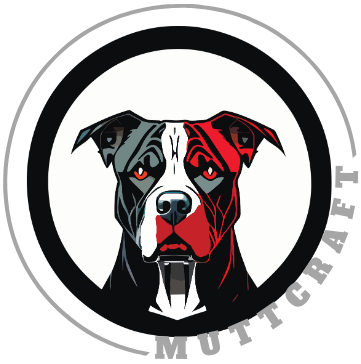Understanding Pit Bull Allergies And Treatment Options
 I have a soft spot for pit bulls, so when I see them scratching incessantly or dealing with discomfort, I know it’s time to talk about allergies. Just like humans, pit bulls can suffer from allergic reactions that can significantly affect their well-being.
I have a soft spot for pit bulls, so when I see them scratching incessantly or dealing with discomfort, I know it’s time to talk about allergies. Just like humans, pit bulls can suffer from allergic reactions that can significantly affect their well-being.
The key signs that your pit bull may be dealing with allergies include persistent itching, skin redness, recurrent ear infections, and even gastrointestinal upsets. Because these symptoms can be distressing, it’s imperative to address them swiftly.
Allergies in these dogs stem from various factors, ranging from dietary ingredients to environmental triggers, and pinpointing the cause is critical for effective treatment. A detailed understanding will not only alleviate their immediate discomfort but can also prevent long-term complications.
Ensuring our pit bull friends lead a quality life means recognizing these allergic reactions early. The discomfort allergies bring can dampen their energy and joyful nature, and it’s up to us to tackle these issues head-on.
Identifying the Type of Allergies in Pit bulls
If you’re dealing with a pit bull that seems to be constantly scratching, sneezing, or exhibiting other signs of discomfort, you’re rightfully concerned. It’s essential to determine what type of allergy your pit bull is suffering from to provide the best care possible. Allergies can be broadly categorized into three types: food, environmental, and contact. Each comes with its own set of triggers and requires a different approach to management.
Diagnosing allergies in dogs is a challenge but can be systematically approached. Vets typically begin with a detailed history and physical examination. If allergies are suspected, they may suggest specific tests. Blood tests aim to identify the presence of allergen-specific antibodies, while skin prick tests expose your dog to potential allergens to observe reactions.
Keeping an ‘Allergy Diary’ for your pet can be invaluable. Note every instance your pit bull seems to react negatively, what they ate, where they went, and what they touched. Patterns may emerge that help pinpoint the cause. For instance, if symptoms worsen when your dog plays outside, pollen or grass could be the culprits. If issues arise after mealtime, a particular ingredient may be to blame.
Once the type of allergy has been identified, you can take steps toward effective treatment. The next part of our discussion will focus on how to manage the symptoms and provide relief through various treatment options, so your pit bull can enjoy a comfortable and happy life.
Treatment Options for Pit bull Allergies
If your pit bull has been diagnosed with an allergy, you’re likely concerned about how to alleviate their discomfort. The good news is, there are various treatment methods to help manage the symptoms and improve your pet’s quality of life.
Starting with medications, antihistamines, like the ones we use, can effectively reduce itching and other mild reactions. Your vet may also prescribe corticosteroids to minimize inflammation during severe flare-ups. It’s essential to follow their guidance closely, as long-term steroid use can have side effects.
Immunotherapy, commonly known as allergy shots, is another avenue to explore. Tailored specifically to your dog’s allergens, these can decrease sensitivity over time and offer lasting relief.
When food allergies are the culprit, your vet might recommend an elimination diet to pinpoint the problem ingredient. Once identified, you can switch to a tailored diet that avoids these allergens, often leading to a significant improvement in symptoms.
Lastly, controlling the surrounding environment plays a vital role. Regular bathing with hypoallergenic shampoos, using air purifiers, and frequent cleaning can reduce the presence of environmental allergens in your home.
After choosing the most appropriate treatments, continuing with long-term strategies to prevent flare-ups is crucial for your pit bull’s well being.
Prevention and Long-Term Management of Allergies
Learning how to prevent allergic reactions and manage them over the long term is crucial for maintaining your pit bull’s health and happiness. Preventive measures go a long way in ensuring that your pet encounters fewer allergy triggers. Establishing a hypoallergenic environment is the cornerstone of prevention. This may include investing in air purifiers, using hypoallergenic bedding, and choosing cleaning products carefully to reduce irritants in your home.
Regular maintenance such as consistent grooming can help minimize allergens attached to your pit bull’s coat. Furthermore, a diet optimized to strengthen their immune system can also aid in lessening the severity of allergic reactions. While it’s impossible to eradicate all potential allergens, these strategies can measurably decrease their impact.
To stay ahead of allergies, routine vet check-ups are indispensable. Your veterinarian can catch early signs of allergies and adjust treatment plans as needed. Keep abreast of your pit bull’s vaccination schedule too, as a healthy immune system is less prone to overreact to harmless substances.
Finally, remember that many pet owners have navigated the challenges of allergies with their pit bulls. Through a comprehensive approach tailored to their pet’s specific needs, they’ve achieved success. Their stories remind us that while allergies can be a lifelong condition, they don’t have to diminish your dog’s zest for life. Also alot of these tips and conditions are not pit bull only, they can be the same in all dogs. Here’s to your dogs good life!

Bj
Thank you for the info, very informative and to the point
admin
Thank you! I’m glad you found it useful.